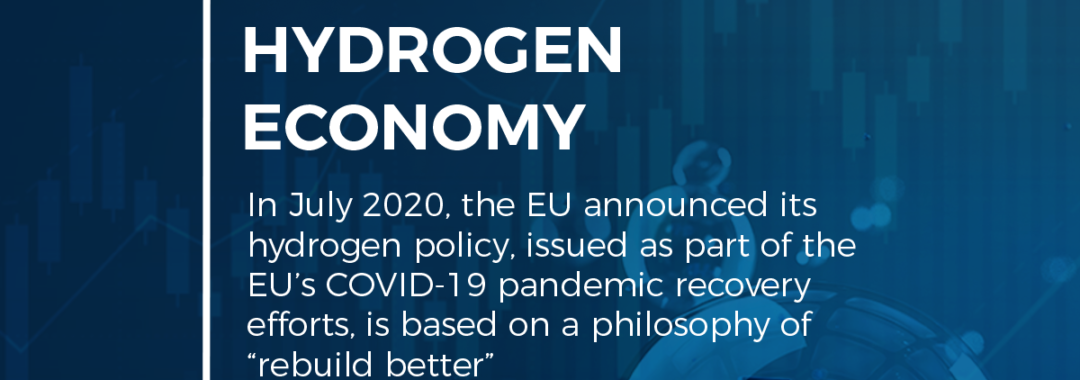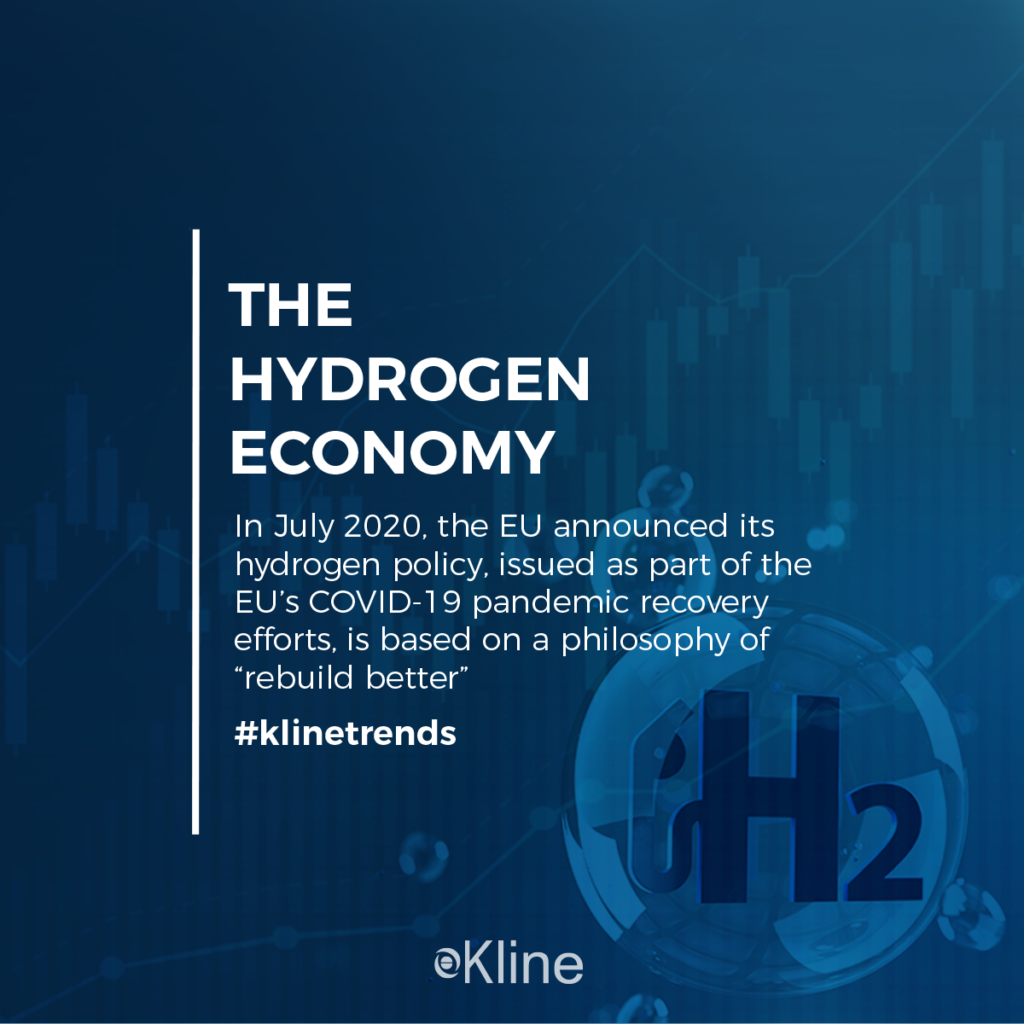[TREND 10] The Hydrogen Economy
In July 2020, the EU announced its hydrogen policy to achieve a carbon-neutral economy. Several countries, including Australia and Japan, issued such policies in the past. However, the EU policy is more comprehensive and takes an integrated approach to reducing carbon footprints. The policy, issued as part of the EU’s COVID-19 pandemic recovery efforts, is based on a philosophy of “rebuild better” to be better equipped to fight climate change.
There is certainly a lot of enthusiasm behind this plan. It would be reasonable to assume that some subset of it, if not the whole plan, will be realized, provided the current zeal for this technology does not fade away.
Besides power generation, a large impact of the hydrogen economy will be felt in the transport sector: trucking, personal mobility, marine, railways, and aviation.
European lubricants demand was in a gentle decline before the COVID-19 crisis. Significant demand contraction has occurred in 2020, some of which will be recovered in 2021. In the mid- to long-term, however, commercial engine oil demand contraction on account of the growing hydrogen economy should be assumed. Subject to the growth in hydrogen supply and supply infrastructure and continuous hydrogen fuel cell technology development, HDMO demand will experience significant demand.
#klinetrends #kline2020countdown #technology #hydrogen #sustainability #innovation #future #hydrogenenergy #hydrogeneconomy
Follow our 2020 COUNTDOWN CALENDAR for the 30 biggest trends HERE
Categories
Recent Posts
- How are Companies Using Innovation to Meet LATAM’s Industrial Lubricant Needs?
- Why is India a Hotspot for Professional Beauty Brands?
- 3 Ways to Better Target Salons and Independent Stylists
- How are the EU’s New Sustainability Regulations Reshaping the Personal Care Industry?
- Market Availability of Glyphosate Extended to 2027 in Mexico Due to Lack of Viable Alternatives and Concerns Over Food Production and Security


